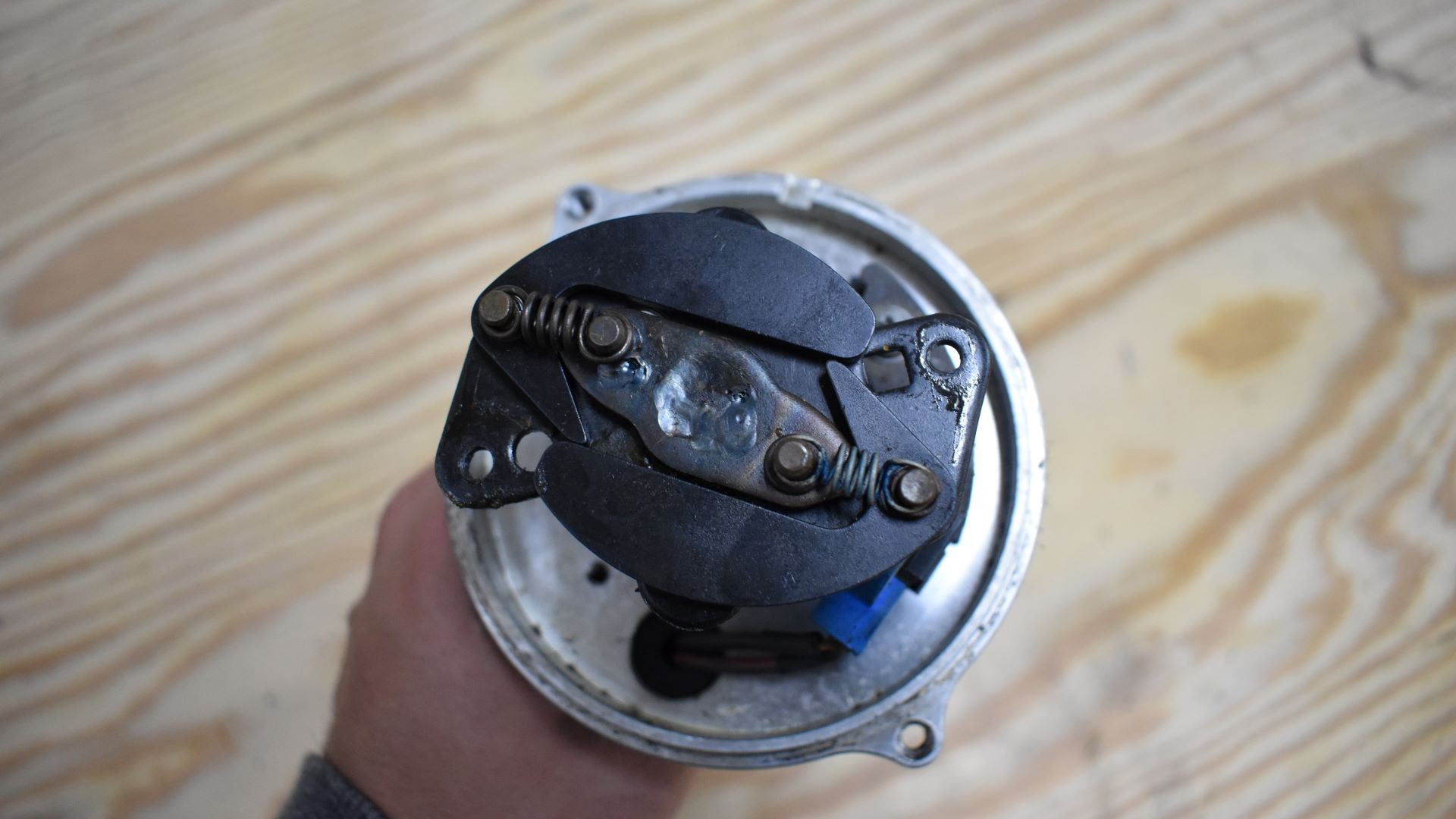How To Fix A Car Key That Broke In Half
Fixing a car key that broke in half can be a frustrating experience, but it’s not an insurmountable problem. CARDIAGTECH.NET is here to guide you through the process, offering solutions and insights to get you back on the road. Discover effective methods and when to consider professional help, along with car key repair, broken car key extraction and key replacement services.
1. Understanding Why Car Keys Break
Car keys, despite their small size, endure a lot of wear and tear. Understanding why they break can help prevent future issues. Several factors contribute to car key breakage:
- Material Fatigue: Constant use weakens the metal over time.
- Excessive Force: Applying too much pressure while turning the ignition or opening a door.
- Poor Key Design: Some keys are inherently more fragile than others.
- Environmental Factors: Extreme temperatures can affect the key’s structural integrity.
- Wear and Tear: General wear and tear over the years of usage.
Recognizing these causes can prompt proactive measures, such as using a smoother touch, lubricating locks, and promptly seeking key duplication or replacement when wear becomes evident.
2. Immediate Steps After a Car Key Breaks
When your car key breaks, staying calm and taking the right steps is crucial. Here’s what to do immediately:
- Assess the Situation: Determine where the key broke (in the ignition, door, or separately).
- Gather the Pieces: Collect all fragments of the key, as they may be needed for duplication.
- Do Not Force Anything: Avoid trying to force the broken key further into the ignition or lock.
- Consider Your Options: Decide whether to attempt a DIY fix or call a professional.
Taking these immediate steps minimizes potential damage and sets the stage for the best course of action.
3. DIY Methods to Temporarily Fix a Broken Car Key
If you’re inclined to try a temporary fix, here are some DIY methods:
- Super Glue:
- Clean the broken edges.
- Apply a small amount of super glue.
- Hold the pieces together firmly until the glue dries completely.
- Reinforcement with Tape:
- After gluing, wrap the key with strong tape (electrical or duct tape) for added support.
- Using a Key Extractor Tool:
- Insert the tool alongside the broken key.
- Carefully wiggle and pull to extract the key fragment.
- Creating a Makeshift Handle:
- If the plastic handle broke, mold epoxy putty around the key to create a new handle.
These methods are temporary solutions and may not work for all types of breaks. They are best suited for minor damage and when you need to use the key immediately.
4. Step-by-Step Guide: Removing a Broken Key from the Ignition
A broken key stuck in the ignition can be particularly stressful. Here’s a step-by-step guide to safely remove it:
- Turn the Ignition to the “Off” Position: Ensure the ignition is completely off to prevent any electrical issues.
- Apply Lubricant: Use a lubricant such as WD-40 or graphite powder to help loosen the key fragment. Spray a small amount into the ignition.
- Use Key Extractor Tools:
- Insert the extractor tool alongside the broken key.
- Gently wiggle the tool to grip the key fragment.
- Slowly pull the key out, avoiding excessive force.
- Pliers Method (Use with Caution):
- If a small piece of the key is sticking out, use needle-nose pliers to grip it.
- Gently wiggle and pull the key out. Be careful not to damage the ignition.
- Professional Assistance: If the key is deeply lodged or you’re uncomfortable proceeding, call a locksmith immediately.
Important Note: According to AAA, attempting to remove a broken key yourself can sometimes cause further damage to the ignition. If you are not comfortable with these steps, it’s best to seek professional help.
5. When to Call a Professional Locksmith
While DIY methods can be useful, there are situations where calling a professional locksmith is the best course of action:
- Key Broke Deep Inside the Ignition: If the key is lodged deep and you can’t grip it.
- Visible Damage to the Ignition: Cracks, chips, or bending in the ignition lock.
- DIY Attempts Failed: If your attempts to remove the key or fix it have been unsuccessful.
- Need for a Key Replacement: When you need a new key made quickly and accurately.
- Transponder Key Issues: If the broken key is a transponder key and needs reprogramming.
Locksmiths have specialized tools and expertise to handle these situations safely and efficiently.
6. Advantages of Hiring a Locksmith
Hiring a professional locksmith offers several key benefits:
- Expertise: Locksmiths are trained to handle various key and lock issues.
- Specialized Tools: They have tools designed for safe key extraction and replacement.
- Time-Saving: Locksmiths can quickly resolve the issue, saving you time and stress.
- Damage Prevention: They can prevent further damage to your vehicle’s ignition or locks.
- Key Replacement: Locksmiths can create new keys on the spot, including transponder keys.
- 24/7 Availability: Many locksmiths offer around-the-clock services for emergencies.
- Cost-Effective: Using a locksmith can prevent costly damage from DIY attempts.
AAA recommends using a certified locksmith to ensure quality service and avoid potential scams.
7. How Locksmiths Extract Broken Keys
Locksmiths use specialized tools and techniques to safely extract broken keys:
- Key Extractors: These tools have small hooks or barbs to grip the key fragment.
- Lubricants: Professional-grade lubricants to loosen the key without damaging the ignition.
- Pick Sets: Locksmiths may use picks to manipulate the lock and free the key.
- Ignition Disassembly (If Necessary): In severe cases, the locksmith may carefully disassemble the ignition to remove the key.
These methods ensure minimal damage and a successful extraction.
8. Replacing a Broken Car Key: Options and Costs
Replacing a broken car key involves several options, each with varying costs:
- Dealership:
- Pros: Guaranteed to work with your car, can handle complex transponder keys.
- Cons: More expensive, may take longer.
- Locksmith:
- Pros: Faster service, often more affordable than dealerships, can handle most key types.
- Cons: May not be able to program very advanced keys.
- Online Key Services:
- Pros: Convenient, potentially cheaper.
- Cons: Requires VIN and proof of ownership, may not work for all car models.
Cost Breakdown:
| Service | Average Cost |
|---|---|
| Basic Key | $50 – $150 |
| Transponder Key | $150 – $400 |
| Key Fob | $200 – $500 |
| Ignition Repair | $100 – $500 |
| Locksmith Service Call | $75 – $150 |
Prices vary based on the type of key, car model, and service provider.
9. Understanding Transponder Keys and Their Replacement
Transponder keys contain a microchip that communicates with your car’s immobilizer system. Replacing them requires programming the new key to match your car’s system:
- Programming Methods:
- Dealership Programming: Requires special equipment and software.
- Locksmith Programming: Many locksmiths have the necessary tools.
- DIY Programming: Some cars allow DIY programming using specific sequences (check your owner’s manual).
- Cost Factors:
- The complexity of the transponder system.
- The need for specialized equipment.
- The service provider (dealership vs. locksmith).
Ensure the replacement key is correctly programmed to avoid security issues.
10. Preventing Car Key Breakage
Preventing car key breakage involves simple yet effective practices:
- Avoid Excessive Force: Turn keys gently without forcing them.
- Lubricate Locks: Use graphite powder or silicone-based lubricant to keep locks smooth.
- Use a Key Protector: A key protector can provide added support and prevent bending.
- Keep Keys Separate: Avoid overloading your keychain with heavy items that can strain the key.
- Regular Inspection: Check your keys for signs of wear and tear regularly.
Implementing these tips can extend the life of your car keys and save you from unexpected breakage.
11. The Role of Key Fobs and Remote Starters
Key fobs and remote starters offer convenience and security, but they can also malfunction. Here’s what to do:
- Key Fob Issues:
- Battery Replacement: Start by replacing the battery.
- Reprogramming: If the fob doesn’t work after a battery change, it may need reprogramming.
- Professional Help: Locksmiths or dealerships can reprogram key fobs.
- Remote Starter Problems:
- Check the Battery: Ensure the remote starter battery is functional.
- Reset the System: Some systems have a reset button or sequence.
- Professional Inspection: If issues persist, consult a professional for diagnosis and repair.
Regular maintenance and prompt attention to malfunctions can keep these systems working reliably.
12. How to Choose the Right Locksmith
Choosing the right locksmith is crucial for quality service and peace of mind. Consider the following factors:
- Licensing and Certification: Ensure the locksmith is licensed and certified.
- Reputation: Check online reviews and ratings.
- Experience: Look for a locksmith with extensive experience in automotive services.
- Services Offered: Ensure they offer the specific services you need (key extraction, replacement, programming).
- Response Time: Choose a locksmith with a fast response time, especially for emergencies.
- Pricing: Get a clear estimate before work begins.
- Insurance: Verify that the locksmith is insured.
AAA recommends using certified locksmiths to ensure reliable and trustworthy service.
13. Understanding Car Key Security
Car key security has evolved significantly, with advanced features to prevent theft. Key security measures include:
- Transponder Chips: These chips communicate with the car’s immobilizer system, preventing unauthorized starts.
- Rolling Codes: Key fobs use rolling codes to prevent replay attacks.
- Keyless Entry Systems: These systems use encrypted signals to unlock and start the car.
- Alarm Systems: Many cars have integrated alarm systems that activate upon unauthorized entry.
Staying informed about these security features can help protect your vehicle from theft.
14. Emergency Car Key Solutions
When you’re facing a car key emergency, knowing your options is essential:
- Spare Key: If you have a spare key, retrieve it immediately.
- Roadside Assistance: Many insurance policies and auto clubs offer roadside assistance, including locksmith services.
- Mobile Locksmiths: These locksmiths come to your location, providing on-the-spot services.
- Towing Services: If you can’t resolve the issue on-site, consider towing your car to a dealership or locksmith.
Having a plan for car key emergencies can minimize stress and downtime.
15. Legal Considerations
Replacing a car key involves certain legal considerations:
- Proof of Ownership: You must provide proof of ownership (registration, title) to get a replacement key.
- Identification: Locksmiths and dealerships require identification to verify your identity.
- VIN Verification: The Vehicle Identification Number (VIN) is often required to ensure the correct key is made.
These requirements protect against theft and ensure that only authorized individuals can obtain replacement keys.
16. The Future of Car Key Technology
Car key technology continues to advance, with innovations focused on convenience and security:
- Smartphone Keys: Many new cars allow you to use your smartphone as a key.
- Biometric Keys: Some manufacturers are exploring biometric authentication for car keys.
- Enhanced Encryption: Advanced encryption methods are being developed to prevent key cloning and theft.
- Over-the-Air Updates: Car key systems can now receive over-the-air updates to improve security and functionality.
These advancements promise a future of more secure and convenient car key technology.
17. How CARDIAGTECH.NET Can Help
At CARDIAGTECH.NET, we understand the frustration and inconvenience of dealing with broken car keys. That’s why we offer a range of solutions to help you get back on the road quickly:
- Comprehensive Tool Selection: CARDIAGTECH.NET provides a wide selection of high-quality tools for automotive repairs, including key extractors, lock picks, and programming equipment.
- Expert Advice: Our team of experienced technicians can provide expert advice on how to handle broken car keys and other automotive issues.
- Educational Resources: Access our extensive library of articles and tutorials to learn about car key repair, replacement, and security.
- Professional-Grade Equipment: We offer professional-grade equipment that locksmiths and automotive technicians trust for reliable and efficient repairs.
- Convenient Online Shopping: Browse our online store to find the tools and equipment you need, with fast and reliable shipping.
CARDIAGTECH.NET is committed to providing the tools, resources, and support you need to tackle any car key challenge.
18. Call to Action
Don’t let a broken car key ruin your day. At CARDIAGTECH.NET, we offer the tools and expertise to help you get back on the road quickly and safely. Whether you need to extract a broken key, replace a transponder key, or upgrade your car key security, we have you covered.
Contact us today for expert advice and solutions tailored to your needs. Our team is ready to assist you with professional-grade equipment and comprehensive support.
Contact Information:
- Address: 276 Reock St, City of Orange, NJ 07050, United States
- WhatsApp: +1 (641) 206-8880
- Website: CARDIAGTECH.NET
FAQ: Fixing a Car Key That Broke in Half
-
What should I do if my car key breaks in the ignition?
- Turn off the ignition, apply lubricant, and use key extractor tools. If you’re uncomfortable, call a locksmith.
-
Can I use super glue to fix a broken car key?
- Yes, but it’s a temporary fix. Clean the edges, apply a small amount of glue, and hold the pieces together until dry. Reinforce with tape.
-
When should I call a locksmith for a broken car key?
- Call a locksmith if the key is deep in the ignition, there’s visible damage, DIY attempts failed, or you need a transponder key replacement.
-
How much does it cost to replace a broken car key?
- Basic key: $50 – $150, Transponder key: $150 – $400, Key fob: $200 – $500.
-
Can a locksmith program a transponder key?
- Yes, many locksmiths have the tools to program transponder keys.
-
What do I need to provide to get a replacement car key?
- Proof of ownership (registration, title), identification, and the Vehicle Identification Number (VIN).
-
How can I prevent car key breakage?
- Avoid excessive force, lubricate locks, use a key protector, keep keys separate, and inspect keys regularly.
-
What are the advantages of hiring a locksmith over a dealership?
- Faster service, often more affordable, and can handle most key types.
-
What tools do locksmiths use to extract broken keys?
- Key extractors, lubricants, pick sets, and ignition disassembly (if necessary).
-
What are the latest advancements in car key security?
- Smartphone keys, biometric keys, enhanced encryption, and over-the-air updates.
By following these guidelines and seeking professional help when needed, you can effectively address a broken car key situation and get back on the road with minimal disruption. Remember, CARDIAGTECH.NET is here to support you with quality tools, expert advice, and reliable solutions.





